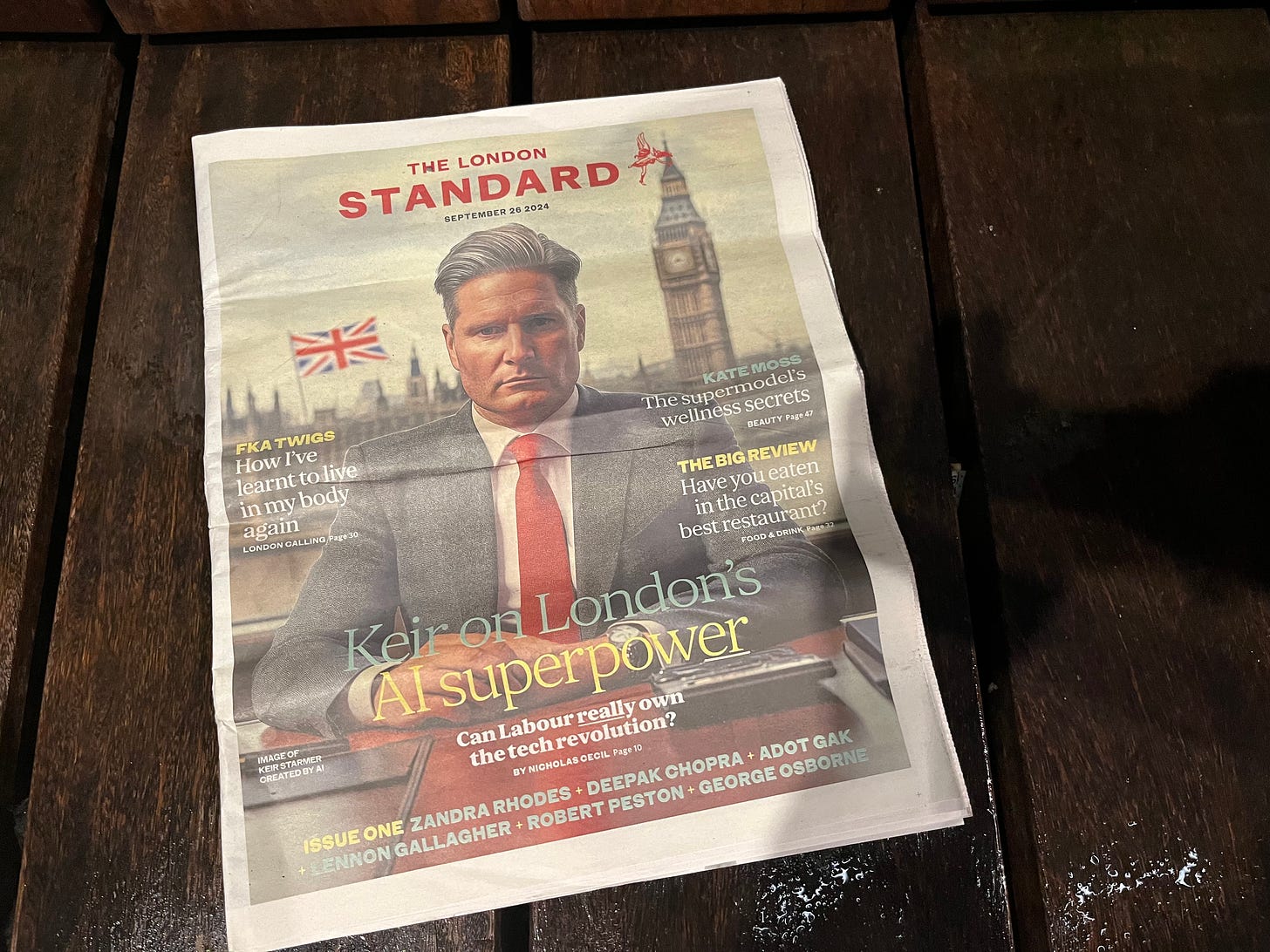Who funds the London Standard?
A pre-launch mini bonus edition: What happened when we asked Lord Lebedev whether Saudi Arabia is paying for the capital's best-known news outlet.
Welcome to London Centric, where we are absolutely not AI-generated.
The sheer amount of money from Middle Eastern governments swilling around London is one of the biggest stories in the capital. It’s also a story that many media outlets are reluctant to cover because they stand to receive some of the lucre.
It used to just be London’s lawyers, lobbyists, and property developers who took the pots of cash available from the Gulf. Dubai’s rulers employed the sort of high-end PR agencies who don’t list their clients and have a single black-and-white photo of St Paul’s Cathedral as their homepage. Qatar’s government funded the construction of the Shard at London Bridge before leaving a large part of it empty. Kuwait’s government bought London’s purpose-built City Hall by Tower Bridge before hiking the rent so much that Sadiq Khan moved out and now runs the capital from an old exhibition centre next to a cable car in the former docklands.
Now the same Gulf government money has moved into areas that come with real soft power: the arts, sports, and the media. London’s cultural capital is for sale, if you can meet the incredibly reasonable price. Why does this matter? Because this is one of the biggest shifts in the capital’s centre of power for a generation.
No one has more to spend right now than Saudi Arabia under crown prince Mohammed bin Salman. You can stay in a luxury Mayfair hotel owned by the Saudi government, see endless adverts for Saudi tourism on the big screens at Piccadilly Circus, then finish the evening hearing the Saudi national anthem blare out at Wembley stadium before a boxing match between two British fighters. (Just don’t say the word ‘sportswashing’ or you won’t be allowed in.)
All of this leads to the question that’s very relevant to our hearts: Who funds the Standard, the capital’s best-known news outlet? And is the Saudi government involved?
Subscribers can scroll down to watch a video of what happened when we put this question to Lord Lebedev.
We launch the first of our twice-weekly editions next week. We’ll be looking at a different kind of power in London: the mayor, and what’s next at City Hall. If you have a story, something that needs investigating, or any feedback at all please send me a WhatsApp.
London Centric will live or die according to whether people pay to subscribe — and I’ve been overwhelmed by the response so far. It’s a long way to go until this publication will be sustainable but I believe that people want new and interesting stories about the capital. (There’s lots on the way and we’ve already had our first legal threats!)
As a thank you, everyone who has paid for the publication pre-launch will receive two weeks’ extra coverage for free - ensuring you aren’t left out of pocket because you backed London Centric early. I’m also keeping the introductory pricing — equivalent to just over £1 a week — going for a little bit longer.
Writing in the Times this week, Tomiwa Owolade kindly wished London Centric the best and suggested subscriptions might be as a possible future model for London journalism. He asked if the Evening Standard ultimately suffered for being free: “Were people like me, who expected a quality product without having to pay for it, the reason for its decline?”
If I’d ever thought how my career would play out, I probably wouldn’t have expected to be hovering outside the Outernet — a series of giant LED screens in a quasi-public space by Tottenham Court Road station — waiting for Gandalf to appear with Lord Lebedev.
He’s a hard man to get track down — Lebedev, not Gandalf. But having been tipped-off that the majority shareholder of the Standard’s parent company (and his marginally-more-famous co-pub owner Sir Ian McKellen) would be handing out copies of the new weekly London Standard print edition outside the building, I popped along to ask some questions.
I wanted to know who is picking up the tab for the Standard amid suggestions that a mysterious Saudi investor ultimately made the decision to drop the publication’s daily print edition. I also wanted to know how he felt about the way many long-serving Standard staff were made redundant, with some receiving the payouts just above the legal minimum after decades with the publication.
Here’s the video of what Lord Lebedev had to say:
Keep reading with a 7-day free trial
Subscribe to London Centric to keep reading this post and get 7 days of free access to the full post archives.






